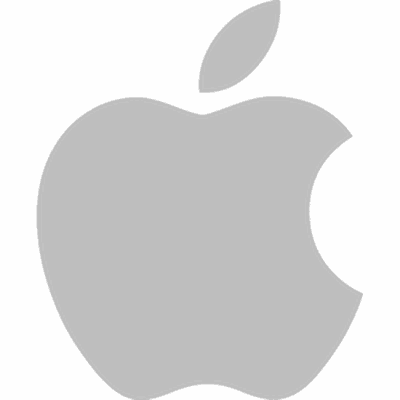Controversial Cybersecurity Information Sharing Act Passes in Senate
 The U.S. Senate today passed the controversial Cybersecurity Information Sharing Act, also known as CISA, in a 74 to 21 vote. A similar bill has already passed in the House, and the two cybersecurity bills will likely be combined before heading to the White House for a final decision from President Obama. The vote comes a week after Apple spoke out against the bill.
The U.S. Senate today passed the controversial Cybersecurity Information Sharing Act, also known as CISA, in a 74 to 21 vote. A similar bill has already passed in the House, and the two cybersecurity bills will likely be combined before heading to the White House for a final decision from President Obama. The vote comes a week after Apple spoke out against the bill.
CISA is designed to allow companies to share information on cybersecurity threats with one another and the government. However, as noted by Wired, privacy advocates have asked Congress to kill the bill, saying that it hides "new government surveillance mechanisms in the guise of security protections."
Apple spoke out against the bill last week after other technology companies, like Twitter, Yelp, Wikipedia, reddit also opposed the bill. The Computer and Communications Industry Association, which represents Google, Amazon, Facebook and Microsoft had urged the Senate to make improvements to the bill, saying that they do not support the bill as it's currently written.
The Cupertino company once again reiterated its commitment to user privacy in its opposition to the legislation, saying that it doesn't support CISA and that the trust of its customers "means everything to us and we don't believe security should come at the expense of privacy." Apple has taken a strong privacy stance in recent years, continually noting that the government doesn't have access to its servers. In iOS 8, Apple ended its storage of encryption keys for iOS devices, making it impossible for the company to unlock iPads an iPhones under police request.
Note: Due to the political nature of the discussion regarding this topic, the discussion thread is located in our Politics, Religion, Social Issues forum. All forum members and site visitors are welcome to read and follow the thread, but posting is limited to forum members with at least 100 posts.
Popular Stories
Apple's next-generation iPhone 17 Pro and iPhone 17 Pro Max are less than three months away, and there are plenty of rumors about the devices.
Apple is expected to launch the iPhone 17, iPhone 17 Air, iPhone 17 Pro, and iPhone 17 Pro Max in September this year.
Below, we recap key changes rumored for the iPhone 17 Pro models:Aluminum frame: iPhone 17 Pro models are rumored to have an...
Apple is developing a MacBook with the A18 Pro chip, according to findings in backend code uncovered by MacRumors.
Earlier today, Apple analyst Ming-Chi Kuo reported that Apple is planning to launch a low-cost MacBook powered by an iPhone chip. The machine is expected to feature a 13-inch display, the A18 Pro chip, and color options that include silver, blue, pink, and yellow.
MacRumors...
The long wait for an Apple Watch Ultra 3 appears to be nearly over, and it is rumored to feature both satellite connectivity and 5G support.
Apple Watch Ultra's existing Night Mode
In his latest Power On newsletter, Bloomberg's Mark Gurman said that the Apple Watch Ultra 3 is on track to launch this year with "significant" new features, including satellite connectivity, which would let you...
The upcoming iPhone 17 Pro and iPhone 17 Pro Max are rumored to have a slightly different MagSafe magnet layout compared to existing iPhone models, and a leaked photo has offered a closer look at the supposed new design.
The leaker Majin Bu today shared a photo of alleged MagSafe magnet arrays for third-party iPhone 17 Pro cases. On existing iPhone models with MagSafe, the magnets form a...
Apple is planning to launch a low-cost MacBook powered by an iPhone chip, according to Apple analyst Ming-Chi Kuo.
In an article published on X, Kuo explained that the device will feature a 13-inch display and the A18 Pro chip, making it the first Mac powered by an iPhone chip. The A18 Pro chip debuted in the iPhone 16 Pro last year. To date, all Apple silicon Macs have contained M-series...
Apple today seeded the second betas of upcoming iOS 18.6 and iPadOS 18.6 updates to public beta testers, with the betas coming just a day after Apple provided the betas to developers. Apple has also released a second beta of macOS Sequoia 15.6.
Testers who have signed up for beta updates through Apple's beta site can download iOS 18.6 and iPadOS 18.6 from the Settings app on a compatible...
iOS 26 and iPadOS 26 add a smaller yet useful Wi-Fi feature to iPhones and iPads.
As spotted by Creative Strategies analyst Max Weinbach, sign-in details for captive Wi-Fi networks are now synced across iPhones and iPads running iOS 26 and iPadOS 26. For example, while Weinbach was staying at a Hilton hotel, his iPhone prompted him to fill in Wi-Fi details from his iPad that was already...
Apple hasn't updated the AirPods Pro since 2022, and the earbuds are due for a refresh. We're counting on a new model this year, and we've seen several hints of new AirPods tucked away in Apple's code. Rumors suggest that Apple has some exciting new features planned that will make it worthwhile to upgrade to the latest model.
Subscribe to the MacRumors YouTube channel for more videos.
Heal...
As part of its 10-year celebrations of Apple Music, Apple today released an all-new personalized playlist that collates your entire listening history.
The playlist, called "Replay All Time," expands on Apple Music's existing Replay features. Previously, users could only see their top songs for each individual calendar year that they've been subscribed to Apple Music, but now, Replay All...
 The U.S. Senate today passed the controversial Cybersecurity Information Sharing Act, also known as CISA, in a 74 to 21 vote. A similar bill has already passed in the House, and the two cybersecurity bills will likely be combined before heading to the White House for a final decision from President Obama. The vote comes a week after Apple spoke out against the bill.
The U.S. Senate today passed the controversial Cybersecurity Information Sharing Act, also known as CISA, in a 74 to 21 vote. A similar bill has already passed in the House, and the two cybersecurity bills will likely be combined before heading to the White House for a final decision from President Obama. The vote comes a week after Apple spoke out against the bill.






















